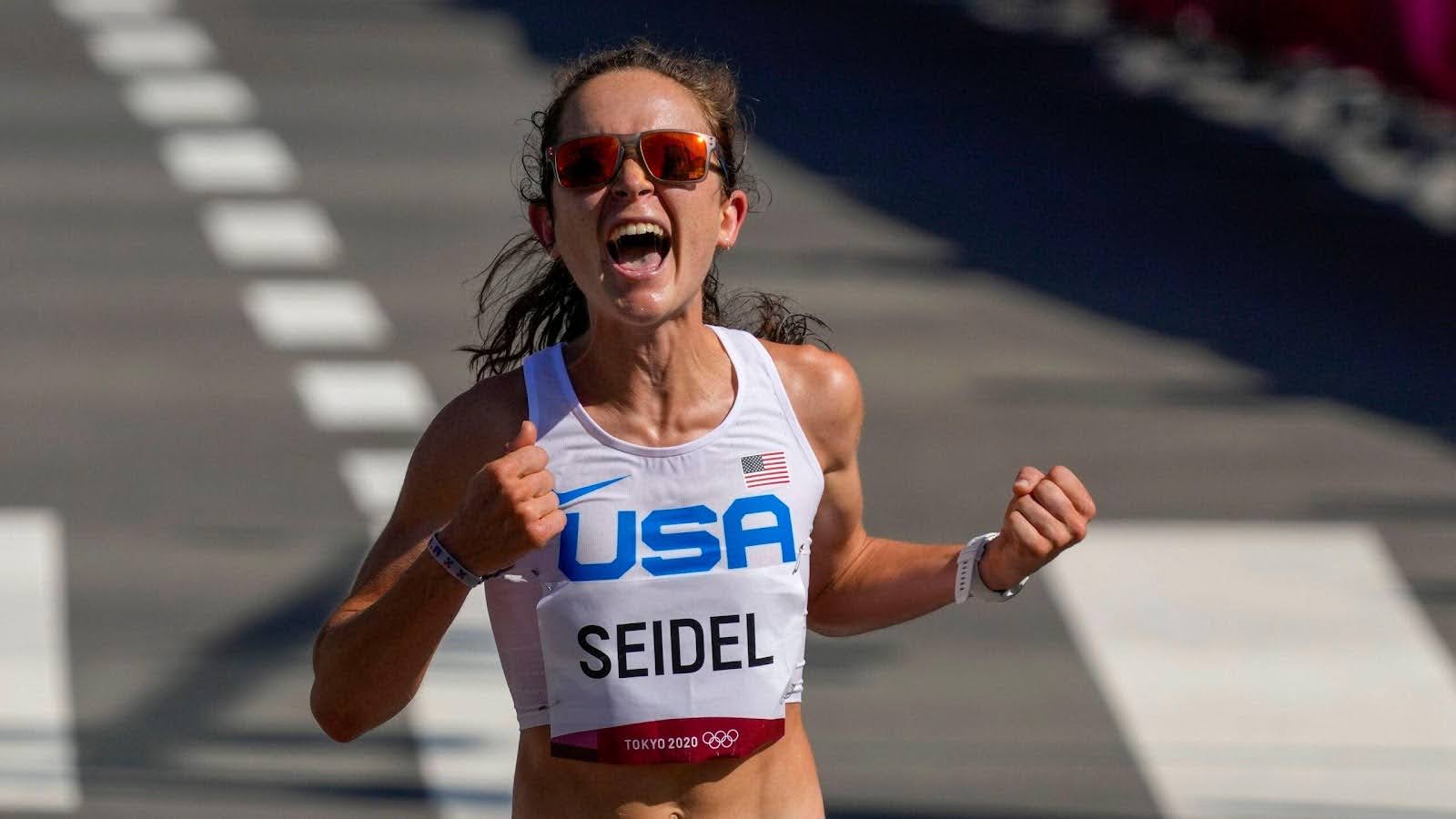The journey to Olympic glory is fraught with challenges, and for Massachusetts’ own Molly Seidel, a recent injury has put a temporary halt to her aspirations for the 2024 Games. An accomplished marathoner, Seidel’s preparation for the Olympic trials faced a significant setback when a knee injury—specifically, a fractured patella and a partially torn patellar tendon—was revealed through an MRI.
Opting for her long-term health over immediate competition, Seidel withdrew from the Orlando race, embodying the often-painful decisions athletes must make in pursuit of their dreams. This article delves into the nuances of Seidel’s situation, highlighting the complexities of elite athletic preparation and the resilience required to navigate the road to recovery.
The Injury Diagnosis: Understanding the Severity of Seidel’s Setback
The news of Molly Seidel’s injury came as a shock to fans and fellow athletes alike. A fractured patella and a partially torn patellar tendon are not minor concerns; they are significant injuries that can sideline an athlete for months. The patella, or kneecap, plays a crucial role in knee mobility and stability, particularly for runners who rely heavily on their knees for endurance and speed.
A partial tear in the patellar tendon, which connects the kneecap to the shinbone, further complicates recovery, necessitating a delicate balance of rest and rehabilitation.
The Decision to Withdraw: Prioritizing Health Over Competition
Facing the harsh realities of her injury, Molly Seidel made the difficult but wise decision to withdraw from the 2024 marathon trials in Orlando. This move, while disappointing to many, underscores an important message in competitive sports: the athlete’s health must come first.
Seidel’s choice reflects a maturity and long-term perspective, recognizing that attempting to compete with such injuries could lead to further damage, potentially jeopardizing her entire career. It’s a reminder of the critical decisions athletes face, balancing the pursuit of glory with the imperative to protect their bodies for future competitions.
The Challenges of Cross-Training: Navigating Alternative Training Methods
In the wake of her injury, Seidel attempted to maintain her fitness through cross-training, a common practice for injured athletes looking to stay in shape without aggravating their injuries. However, the specifics of her knee injury limited the types of cross-training activities she could safely perform.
This period likely involved a mix of swimming, cycling, and other low-impact exercises designed to maintain cardiovascular health and muscle strength without putting undue stress on the knee.
The efficacy of cross-training in such scenarios is a testament to an athlete’s adaptability and determination, but it also highlights the limitations and frustrations of not being able to train at full capacity.
The Impact on Olympic Preparations: A Pause on Seidel’s Aspirations
Molly Seidel’s withdrawal from the marathon trials casts a shadow over her preparations for the 2024 Olympics. For an athlete of Seidel’s caliber, every race and training session is a step towards Olympic qualification and success.
Missing the trials not only affects her immediate competition plans but also alters her training and preparation timeline for the Olympics. This setback represents a significant hurdle in her career, reminding fans and fellow athletes of the precarious nature of sports, where years of preparation can be derailed by a single injury.
Resilience and Recovery: The Delicate Balance Between Comeback and Health
Seidel’s journey from this point forward will be a delicate balancing act of resilience and recovery. The path back to full health and competitive form is fraught with challenges, requiring patience, determination, and a careful adherence to medical and coaching advice.
This period will test Seidel’s mental and physical strength, as she navigates the complex process of healing while keeping her Olympic dreams alive. Her situation exemplifies the inner strength required by elite athletes to overcome setbacks and continue pursuing their goals.
The Role of Medical Intervention: Exploring Treatment and Rehabilitation Options
For injuries as complex as Seidel’s, medical intervention plays a crucial role in the recovery process. Treatment might include surgery, physical therapy, and a carefully monitored rehabilitation program designed to gradually restore strength and flexibility to the injured knee.
Medical professionals specializing in sports injuries will work closely with Seidel, using a combination of cutting-edge treatments and time-tested rehabilitation techniques to facilitate her recovery. The goal is to ensure a safe and effective return to running, minimizing the risk of re-injury.
The Psychological Battle: Coping With the Mental Strain of Injury
Beyond the physical challenges, Seidel will face a psychological battle as she copes with the frustration, disappointment, and uncertainty brought on by her injury. The mental strain of being sidelined, especially as a competitor accustomed to the rigors of training and the thrill of competition, cannot be understated.
Athletes in this situation often work with sports psychologists to develop strategies for staying positive, focused, and mentally resilient during their recovery. This mental fortitude will be crucial as Seidel aims to return to her pre-injury form.
Community and Support Systems: Leaning on Others During Recovery
The road to recovery for an injured athlete is seldom walked alone. Seidel’s comeback will be supported by a community of family, friends, coaches, medical professionals, and fans. This network provides emotional support, encouragement, and practical assistance, playing an indispensable role in an athlete’s rehabilitation journey.
The solidarity and backing from the sports community underscore the collective hope for Seidel’s return to competitive marathoning, highlighting the importance of a strong support system in overcoming adversity.
Future Competitions and Goals: Adjusting Aspirations and Planning Ahead
While the 2024 marathon trials are no longer a feasible target for Seidel, her sights will inevitably adjust to future competitions and goals. Once her recovery is underway and progress is being made, strategic planning for her return to racing will begin.
This planning process involves setting new targets, adjusting training regimens, and gradually reintegrating into competitive running. Seidel’s ability to set and pursue new objectives will be a testament to her resilience and determination to continue competing at the highest levels of the sport.
For more on athletes’ journeys and updates, BetMGM Massachusetts bonus offers insightful connections to the sports world.
The Broader Implications for Athletes: Lessons Learned From Seidel’s Experience
Molly Seidel’s injury and subsequent withdrawal from the marathon trials offer valuable lessons for athletes across all sports. It highlights the importance of listening to one’s body, prioritizing health over immediate gains, and the need for patience and perseverance in the face of setbacks.
Additionally, Seidel’s experience serves as a reminder of the unpredictable nature of sports and the need for athletes to be prepared for the challenges that come with pursuing their dreams.
Molly Seidel‘s journey through injury, recovery, and beyond is a poignant reminder of the challenges and triumphs that define the world of elite sports. As she navigates the difficult path ahead, her story will undoubtedly inspire athletes and fans alike, underscoring the resilience, determination, and spirit required to overcome adversity and chase Olympic dreams.





